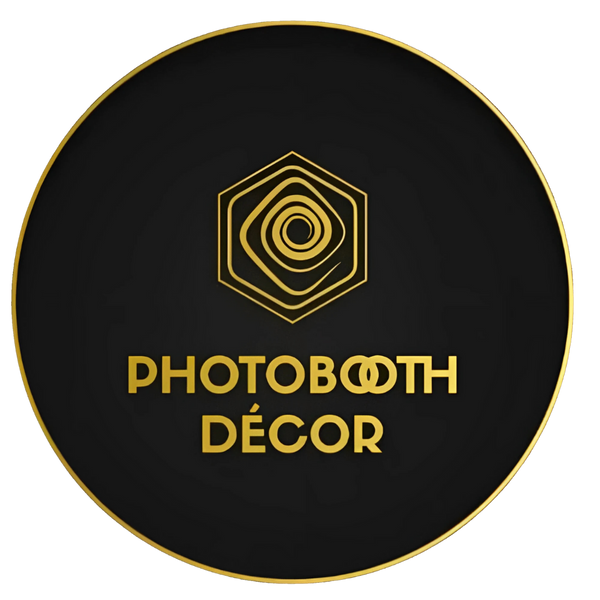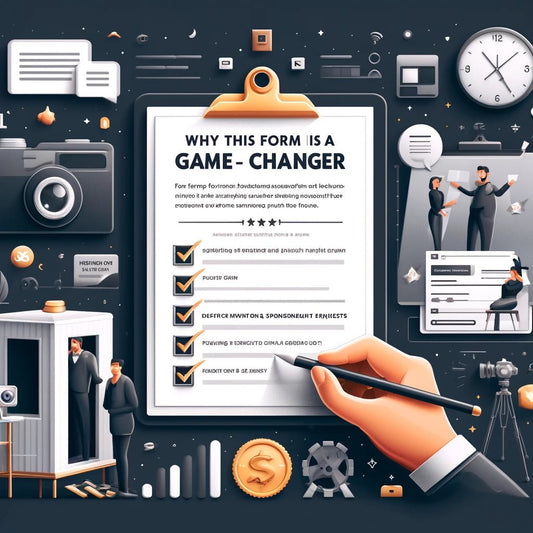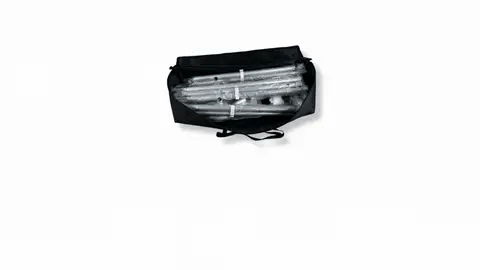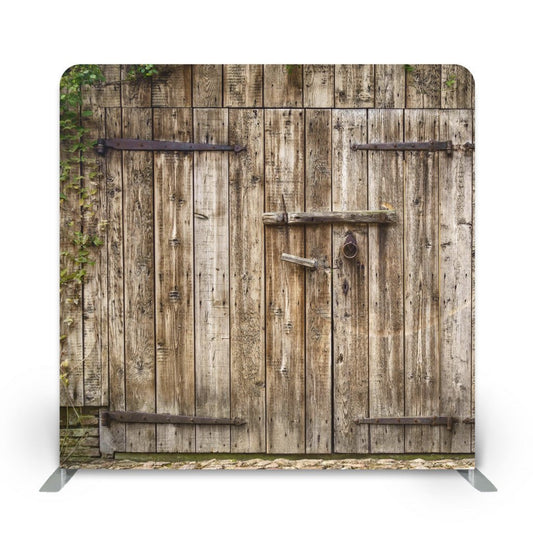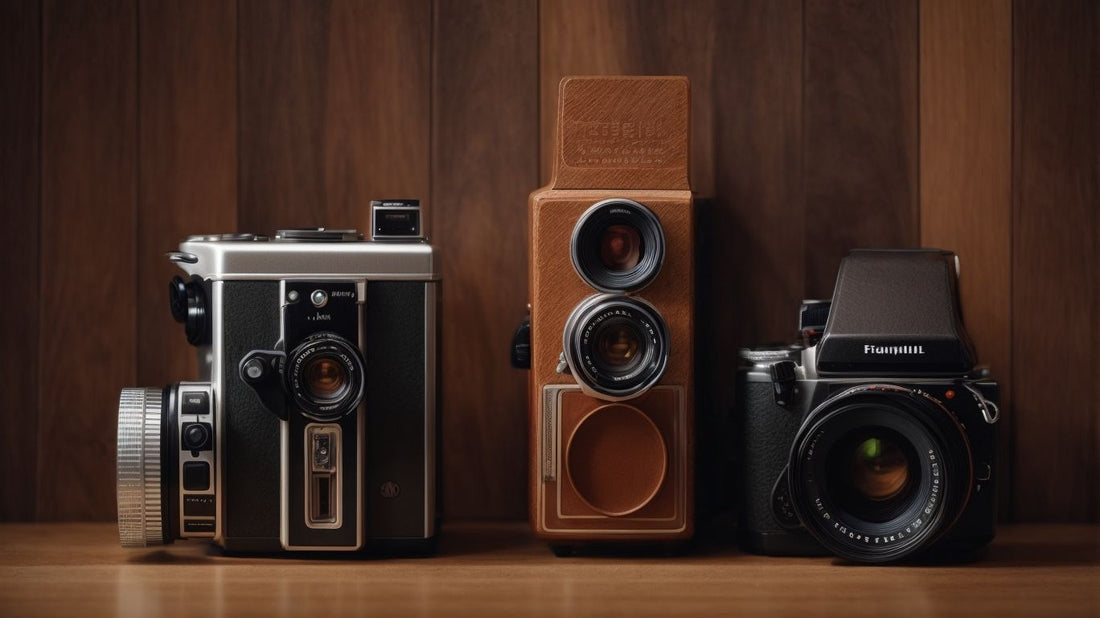
Capture Picture Perfect Moments with our Camera Lens for Photo Booths
Share
.jpg)
Understanding Different Camera Lens Options
Looking to capture amazing photos in your photo booth? Dive into the fascinating world of camera lenses with a focus on understanding the different options available. From prime lenses to zoom lenses, wide-angle lenses to macro lenses, and telephoto lenses, each sub-section will uncover the unique capabilities and advantages of these lens types. Get ready to level up your photography game and discover the perfect lens for your photo booth adventures!1. Prime Lenses
Prime lenses are a popular choice among photographers for photo booths, as they offer various advantages:
- Wider Aperture: Prime lenses provide better low-light performance and produce more artistic background blur due to their larger maximum apertures.
- Sharper Image Quality: With fewer glass elements, prime lenses result in sharper images and reduced aberrations.
- Lightweight and Compact: Compared to zoom lenses, prime lenses are generally smaller and lighter, making them more portable and easier to handle.
- Wide Variety of Focal Lengths: Prime lenses are available in different focal lengths, including 35mm, 50mm, and 85mm, offering versatility for various photography styles.
Pro tip: Enhance your photo booth images by experimenting with different prime lenses, exploring the unique characteristics they bring, and adding depth and dimension.
2. Zoom Lenses
Zoom lenses, like the ones mentioned in the provided text, are an exceptionally popular choice for photo booth photography. What makes them so versatile and highly sought-after is their ability to adjust focal length according to the photographer's needs.
If you're considering using zoom lenses for your photo booth, here are some key points to keep in mind:
- Flexibility: The greatest advantage of zoom lenses is the ease and speed with which you can change the focal length. This allows you to capture a wide range of shots, from wide-angle to telephoto, without the hassle of changing lenses.
- Creativity: A zoom lens opens up infinite possibilities for experimentation in terms of composition and perspective. You can unleash your creativity and capture unique and dynamic photos that truly stand out.
- Convenience: Gone are the days of carrying multiple prime lenses. With a zoom lens, you can cover a wide range of focal lengths, eliminating the need for frequent lens changes during a photo booth session. This convenience helps you maintain a smooth workflow and ensures that you never miss a crucial moment.
- Image Quality: Prime lenses are generally known for their sharpness, but modern zoom lenses have made significant advancements in terms of image quality. They now offer great sharpness, clarity, and color accuracy, making them a viable option for professional photo booths.
- Considerations: When selecting a zoom lens for your photo booth, it's important to take a few factors into account. These include the maximum aperture, which determines the lens's ability to gather light; image stabilization, which helps reduce blurring caused by camera shake; and compatibility with your camera's lens mount, ensuring a proper fit and functionality.
3. Wide-angle Lenses
Wide-angle lenses are an essential tool for photo booths as they allow you to capture a wider field of view in your shots. Here are some key points to consider about wide-angle lenses:
- Wide Field of View: Wide-angle lenses have a broader field of view, typically ranging from 35mm to 24mm or even wider. This enables you to fit more into your frame, making them ideal for group shots or capturing the entire booth setup.
- Distortion: Wide-angle lenses can cause distortion, especially at the edges of the frame. However, this distortion can also create interesting and dramatic effects in your photos.
- Perspective: Wide-angle lenses can enhance the sense of depth in your photos, exaggerating the size of objects in the foreground and making those in the background appear smaller. This adds depth and dimension to your images.
- Architectural Photography: Wide-angle lenses are commonly utilized in architectural photography as they allow you to capture expansive buildings and interiors without the need to step back too far.
- Creative Possibilities: Wide-angle lenses offer creative opportunities to capture unique perspectives and viewpoints, adding a dynamic element to your photos.
4. Macro Lenses
Macro lenses are an essential tool in photo booths for capturing close-up shots with impressive detail and clarity. Here are some key highlights when considering macro lenses:
- 1. Focal length: Macro lenses typically have a longer focal length, like 90mm or 100mm, enabling you to get closer to your subjects without distortion.
- 2. Magnification ratio: Look for macro lenses with a high magnification ratio, such as 1:1, which allows for life-size reproduction of small objects.
- 3. Minimum focusing distance: Macro lenses have a shorter minimum focusing distance, allowing you to photograph subjects right up close.
- 4. Image stabilization: Some macro lenses come with image stabilization technology, reducing the risk of camera shake when shooting handheld.
- 5. Aperture: Consider lenses with a wide maximum aperture, like f/2.8, to create a shallow depth of field and achieve beautiful bokeh.
Macro lenses have a fascinating history dating back to the early 20th century when they were developed for scientific purposes, enabling researchers to capture highly detailed images of small subjects. Over time, these macro lenses gained popularity in the world of photography, and today, they are widely used by professionals and hobbyists alike to showcase the intricate beauty of nature, miniature figurines, and other small subjects in stunning detail. Macro lenses continue to evolve, offering advanced features and exceptional optical performance, making them indispensable for capturing the hidden wonders of the world.
5. Telephoto Lenses
Telephoto lenses are crucial when it comes to capturing distant subjects in great detail, making them an ideal choice for setting up photo booths. Here are some important points to consider about telephoto lenses:
- Telephoto lenses, with focal lengths starting at 70mm and going up to 600mm or beyond, allow photographers to zoom in and capture subjects that are situated far away.
- These lenses provide a narrow field of view, making it possible to take close-up shots and isolate subjects from their surroundings.
- Due to their shallow depth of field, telephoto lenses create a stunning background blur effect.
- They are particularly well-suited for photographing portraits, sports events, wildlife, and landscapes.
- Notable telephoto lenses include the Canon EF 70-200mm f/2.8L IS III USM, Nikon AF-S NIKKOR 200-500mm f/5.6E ED VR, and Sony FE 70-200mm f/2.8 GM OSS.
Factors to Consider When Choosing a Camera Lens for Photo Booths
When it comes to choosing a camera lens for photo booths, there are several key factors to consider. From aperture and focal length to image stabilization and lens mount compatibility, each aspect plays a crucial role in capturing those perfect shots. And of course, let's not forget about our budget. In this section, we will explore these factors in depth, providing you with the essential insights you need to make an informed decision. Get ready to elevate your photo booth game with the right camera lens!1. Aperture
When considering a camera lens for photo booths, aperture proves to be a fundamental aspect. Aperture signifies the opening within the lens, managing the quantity of light that enters the camera. Opting for a wide aperture, denoted by a smaller f-number (e.g. f/1.8), permits more light and produces a shallow depth of field, resulting in a blurred background with the subject in focus. Conversely, a narrow aperture, indicated by a larger f-number (e.g. f/16), allows less light and generates a greater depth of field, ensuring that more of the image remains in focus. The selection of the appropriate aperture, depending on the desired effect, plays a vital role in capturing top-notch photos in photo booths.
2. Focal Length
The Focal Length is an essential consideration when selecting a lens for photo booths. It plays a crucial role in determining the angle of view and magnification, which directly impact the composition and perspective of the images. Here is a breakdown of different focal lengths and their respective characteristics:
| Focal Length | Characteristics |
| Wide-angle (less than 35mm) | Expands the field of view, making it ideal for capturing a larger area and group shots. |
| Standard (35-85mm) | Provides a natural perspective and offers versatility for various photography styles. |
| Telephoto (more than 85mm) | Offers a narrower field of view, perfect for close-up shots and isolating subjects. |
Understanding the Focal Length is essential for photographers to achieve the desired photo booth experience. So, it is important to consider the prime purpose of your photo booth and select the appropriate focal length accordingly.
A fascinating piece of history related to the Focal Length is that it was first introduced by Sir Isaac Newton in the 17th century. Through his experiments and observations, he laid the foundation for understanding how a lens's focal length affects the formation of images. This discovery revolutionized the field of optics and continues to shape our modern-day photography techniques.
3. Image Stabilization
Image stabilization is a crucial factor to consider when choosing a camera lens for photo booths. It provides a significant advantage in minimizing blurry images caused by camera shake, allowing you to capture sharp and clear photos. Here are some of the key benefits of image stabilization:
| - Reduced blur: | Image stabilization compensates for camera movement, resulting in sharper images even in low light or when shooting handheld. |
| - Improved versatility: | With image stabilization, you can confidently use slower shutter speeds without compromising image quality, opening up more creative possibilities. |
| - Enhanced video recording: | Image stabilization greatly enhances video footage by providing stability, resulting in smoother and more professional-looking videos. |
| - Higher image quality: | By effectively reducing blur, image stabilization helps achieve sharper and more detailed images, thereby enhancing the overall image quality. |
Pro tip: While shooting with a lens that features image stabilization, it is still crucial to maintain a stable shooting position to maximize the benefits and achieve the best results.
4. Lens Mount Compatibility
Lens mount compatibility is a crucial factor to consider when choosing a camera lens for photo booths. It determines whether a lens can physically attach to a specific camera body. To make the selection process easier, here are some lens mount options for popular camera brands:
| Mount Type | Compatibility |
|---|---|
| Canon EF mount | Compatible with Canon DSLR cameras. |
| Nikon F mount | Compatible with Nikon DSLR cameras. |
| Sony E mount | Compatible with Sony mirrorless cameras. |
| Fujifilm X mount | Compatible with Fujifilm mirrorless cameras. |
| Micro Four Thirds mount | Compatible with Olympus and Panasonic mirrorless cameras. |
Ensuring lens mount compatibility guarantees proper function and optimal image quality. Before making a purchase, always check the lens compatibility list provided by the camera manufacturer or consult with a knowledgeable salesperson.
5. Budget
Considering the budget is crucial when choosing a camera lens for photo booths. It's important to find a lens that provides good performance without breaking the bank. Here is a table showcasing affordable camera lenses for photo booths:
| Lens Model | Price Range |
|---|---|
| Canon EF 50mm f/1.8 STM Lens | $125 - $150 |
| Nikon AF-S FX NIKKOR 50mm f/1.8G Lens | $200 - $250 |
| Sigma 35mm f/1.4 DG HSM Art Lens | $700 - $800 |
| Tamron 24-70mm f/2.8 Di VC USD G2 Lens | $1,000 - $1,200 |
| Sony FE 85mm f/1.8 Lens | $500 - $600 |
These lenses offer excellent quality within different price ranges, catering to various budgets. It's important to consider both the lens's price and its features to make the best decision.
In a similar tone, a friend of mine, who runs a photo booth business, needed to replace a damaged lens within a tight budget. After careful research, he opted for the Canon EF 50mm f/1.8 STM Lens, which provided fantastic performance at an affordable price. This lens allowed him to continue capturing beautiful moments in his photo booth without compromising his budget.
Recommended Camera Lenses for Photo Booths
Capture picture-perfect moments with the right camera lens for your photo booth! In this section, we'll explore some top-notch options that are highly recommended. From the versatile Canon EF 50mm f/1.8 STM Lens to the powerful Nikon AF-S FX NIKKOR 50mm f/1.8G Lens, we've got you covered. If you're craving vibrant artistry, the Sigma 35mm f/1.4 DG HSM Art Lens is a fantastic choice. Seeking reliability with zoom capabilities? Look no further than the Tamron 24-70mm f/2.8 Di VC USD G2 Lens. And last but not least, the Sony FE 85mm f/1.8 Lens offers stunning depth of field. Your photo booth ventures just got a major upgrade!1. Canon EF 50mm f/1.8 STM Lens
The Canon EF 50mm f/1.8 STM Lens is a versatile lens for photo booths, offering exceptional image quality and a wide aperture for beautiful background blur.
- Image Quality: This lens delivers sharp and detailed images, making it perfect for capturing high-quality photos in a photo booth setting.
- Wide Aperture: With an aperture of f/1.8, the Canon EF 50mm f/1.8 STM Lens allows for better low-light performance, enabling photographers to capture well-exposed images even in dimly lit environments.
- Focal Length: The 50mm focal length of the Canon EF 50mm f/1.8 STM Lens is ideal for portraits, as it produces a natural perspective, flattering facial features, and creating a pleasing bokeh effect.
- Compact and Lightweight: The Canon EF 50mm f/1.8 STM Lens is compact and lightweight, making it easy to carry and handle during photo booth sessions.
- Affordability: The Canon EF 50mm f/1.8 STM Lens is also budget-friendly, making it a great option for those starting out in the world of photography.
The Canon EF 50mm f/1.8 STM Lens is a fantastic choice for photo booths, providing excellent image quality, versatility, and affordability.
2. Nikon AF-S FX NIKKOR 50mm f/1.8G Lens
- The Nikon AF-S FX NIKKOR 50mm f/1.8G Lens is a versatile option for photo booths. Its wide aperture of f/1.8 allows for great low-light performance and shallow depth of field. Here are some key features and benefits of this lens:
- High image quality: The lens offers sharpness and clarity in images, resulting in stunning photos.
- Natural perspective: The 50mm focal length provides a natural field of view, similar to what the human eye sees.
- Wide aperture: With a maximum aperture of f/1.8, the Nikon AF-S FX NIKKOR 50mm f/1.8G Lens allows for excellent background blur and subject isolation.
- Compact and lightweight: This lens is portable and easy to carry around for photo booth setups.
- Smooth autofocus: The Silent Wave Motor ensures fast and silent autofocus, allowing for quick and accurate capturing of subjects.
3. Sigma 35mm f/1.4 DG HSM Art Lens
The Sigma 35mm f/1.4 DG HSM Art Lens is a popular choice for photo booths due to its wide aperture and high-quality image performance.
- Wide aperture: With an aperture of f/1.4, this lens allows for excellent low-light performance, making it ideal for indoor photo booths.
- High-quality image: The Sigma 35mm f/1.4 DG HSM Art Lens delivers sharp, detailed images with minimal distortion, ensuring professional-looking photos.
- Versatile focal length: The Sigma 35mm f/1.4 DG HSM Art Lens with a focal length of 35mm is well-suited for both group shots and individual portraits, providing a natural perspective.
- Artistic bokeh: The wide aperture of the Sigma 35mm f/1.4 DG HSM Art Lens enables beautiful background blur, creating a pleasing separation between the subject and the surroundings.
- Compatibility: The Sigma 35mm f/1.4 DG HSM Art Lens is available for various camera mounts, ensuring compatibility with a wide range of camera bodies.
4. Tamron 24-70mm f/2.8 Di VC USD G2 Lens
The Tamron 24-70mm f/2.8 Di VC USD G2 Lens is a widely acclaimed and multipurpose choice for photo booths.
- Zoom Range: Offering a focal length range of 24-70mm, this lens provides flexibility to capture both wide-angle and close-up shots.
- Aperture: With its impressive f/2.8 aperture, this lens excels in low-light conditions and enables precise depth of field control.
- Image Stabilization: Incorporating Vibration Compensation (VC) technology, the lens effectively minimizes camera shake, resulting in sharper images.
- Build Quality: Designed to withstand tough conditions, this lens is resistant to dust and moisture.
- Compatibility: It is compatible with both Canon and Nikon DSLR cameras.
Fact: The Tamron 24-70mm f/2.8 Di VC USD G2 Lens is highly regarded in the photography community for its exceptional image quality and versatility.
5. Sony FE 85mm f/1.8 Lens
The Sony FE 85mm f/1.8 Lens is a versatile option for photo booths, offering excellent image quality and a wide aperture for beautiful background blur.
- Sharpness: This lens delivers sharp and detailed images, making it ideal for capturing portraits and close-up shots in photo booths.
- Bokeh: With its wide f/1.8 aperture, the Sony FE 85mm lens produces a smooth and creamy bokeh, creating stunning out-of-focus backgrounds.
- Portrait Photography: The 85mm focal length is perfect for portrait photography, allowing for flattering perspectives and reducing distortion.
- Low Light Performance: The wide aperture of f/1.8 enables shooting in low-light conditions without sacrificing image quality.
- Compact and Lightweight: The Sony FE 85mm lens is compact and lightweight, making it easy to handle and carry around during photo booth sessions.
Tips for Using Camera Lenses in Photo Booths
Positioning, framing, lighting considerations, and lens maintenance — these are the key elements that can elevate your photo booth game. Discover the essential tips for using camera lenses in photo booths. Learn how to capture the perfect shots, optimize lighting, and keep your lenses in top-notch condition. Get ready to take your photography skills to new heights and create memorable moments in every click. Let's dive in!1. Positioning and Framing
When it comes to utilizing camera lenses in photo booths, it is essential to incorporate proper positioning and framing techniques to ensure the best shots are captured. Here are some crucial tips to keep in mind:
1. Positioning: Ensure that the camera is placed at the appropriate height and angle to properly capture the faces of the subjects. Adjust the lens accordingly to avoid any distortion and guarantee that everyone is comfortably framed within the shot.
2. Framing: Take the time to carefully compose the shot, taking into consideration the desired framing and the number of people present in the photo. Experiment with various framing techniques to capture unique and creative shots.
3. Lighting Considerations: Always consider the lighting conditions to ensure that the photos are well-lit and flattering. The positioning of the subjects in relation to the light source can create different effects and moods within the photos.
4. Lens Maintenance and Care: It is important to regularly clean and protect the camera lens to prevent any smudges or scratches that could potentially affect the quality of the images. Always carry a lens cloth and keep the lens cap on when the camera is not in use.
By implementing these techniques for positioning and framing, you will be able to capture visually appealing and memorable photos in your photo booth.
2. Lighting Considerations
When it comes to using camera lenses in photo booths, lighting considerations play a crucial role in capturing high-quality images. Here are some steps to keep in mind:
- Assess the lighting conditions in the photo booth area before setting up.
- Adjust the camera settings, such as ISO and white balance, to take into account the important lighting considerations.
- Position the lighting equipment strategically to ensure even, flattering lighting on the subjects.
- Experiment with different lighting techniques, like backlighting or using diffusers, to incorporate the lighting considerations and create the desired mood and atmosphere.
- Regularly check and monitor the lighting throughout the event, making adjustments as necessary for optimal results.
3. Lens Maintenance and Care
- Lens Maintenance and Care: Proper lens maintenance and care is crucial to ensure optimal performance and longevity for camera lenses in photo booths. Here are some important steps to follow:
- Keep lenses clean: Use a lens cleaning solution and a microfiber cloth to gently wipe away fingerprints or smudges.
- Protect from dust and moisture: When not in use, always keep lenses in a protective bag or case to prevent dirt and moisture from damaging them.
- Avoid touching the glass: Handle lenses by the barrel or use lens caps to avoid leaving fingerprints or scratches on the glass.
- Regularly check for damage: Inspect lenses for any signs of damage, such as scratches or dents, and get them repaired if necessary.
- Store in a dry environment: Moisture can cause mold or fungus to grow on lenses, so store them in a dry, well-ventilated area.
Some Facts About Camera Lens for Photo Booths:
- ✅ The focal length of a camera lens for photo booths depends on the distance between the camera and objects.
- ✅ A wide aperture is not necessary for photo booth lenses as the goal is to have everything in focus.
- ✅ The Tokina 11-16mm f2.8 lens can be a good choice for photo booth setups with a Canon crop sensor 1.6x camera.
- ✅ Simple Booth HALO is an all-in-one solution for photo booth needs, including a travel case, plug-and-play cable setup, iPad with photo booth software, LED ring light, and stable C-stand.
- ✅ The Simple Booth software used in HALO is specifically designed for use with iPad cameras and is not compatible with DSLR or mirrorless cameras.
Frequently Asked Questions
FAQs: Camera lens for photo booths
1. What is the best focal length for a camera lens to use in a photo booth at a wedding event?
For a Canon crop sensor 1.6x camera, a lens with a focal length between 24-35mm is generally recommended for photo booths at wedding events. This range provides a wide enough view to capture groups of people and the surrounding environment without distortion.
2. Is the Tokina 11-16mm f2.8 lens a good choice for a photo booth?
The Tokina 11-16mm f2.8 lens can be a good choice for a photo booth if you are looking for a wide-angle lens. However, it's important to consider that this lens may create some distortion and be more suitable for casual or artistic photo booth setups rather than formal events.
3. Do I need a wide aperture lens for a photo booth if I want everything to be in focus?
No, a wide aperture lens is not necessary if you want everything in focus. In fact, a lens with a narrower aperture (higher f-number) would be more suitable as it increases the depth of field, allowing for greater focus across a wider range of distances.
4. What are the advantages of using the Simple Booth HALO for a photo booth?
The Simple Booth HALO is an all-in-one solution for photo booths, offering features such as a sturdy travel case, plug-and-play cable setup, LED ring light, and an iPad with photo booth software. It allows guests to preview their photos, share them on social media, and provides an easy and efficient setup experience for event planners.
5. Can I use a DSLR or mirrorless camera with the Simple Booth photo booth software?
No, the Simple Booth software is designed to work with the iPad camera for simplicity and ease of use. It is not compatible with DSLR or mirrorless cameras. However, the Simple Booth HALO already provides a reliable and effective camera setup for most photo booth needs.
6. How can adding a DSLR camera to my photo booth business benefit me?
Adding a DSLR camera to your photo booth business can enhance the quality of your photos and videos, making them look more professional. This allows you to charge premium prices, attract more clients through better referrals, and target bigger, corporate clients with branded activations and 360 booth videos. It ultimately enables you to expand your business and increase your profits.
